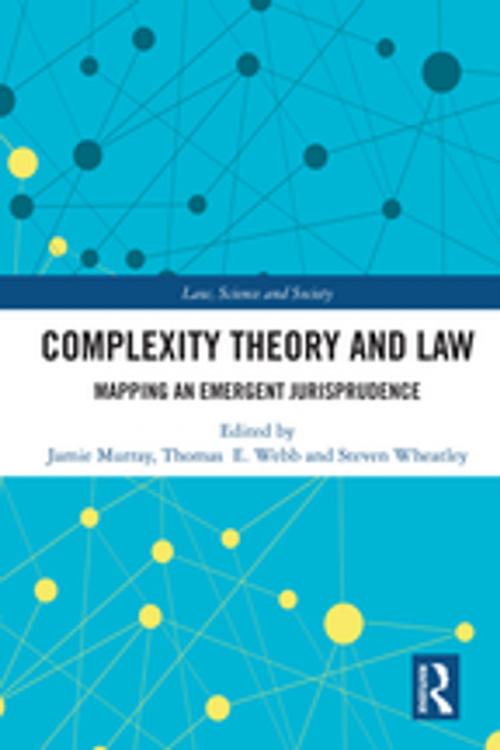Complexity Theory and Law
Mapping an Emergent Jurisprudence
Nonfiction, Science & Nature, Science, Other Sciences, System Theory, Reference & Language, Law, Jurisprudence| Author: | ISBN: | 9781351658171 | |
| Publisher: | Taylor and Francis | Publication: | July 17, 2018 |
| Imprint: | Routledge | Language: | English |
| Author: | |
| ISBN: | 9781351658171 |
| Publisher: | Taylor and Francis |
| Publication: | July 17, 2018 |
| Imprint: | Routledge |
| Language: | English |
This collection of essays explores the different ways the insights from complexity theory can be applied to law. Complexity theory – a variant of systems theory – views law as an emergent, complex, self-organising system comprised of an interactive network of actors and systems that operate with no overall guiding hand, giving rise to complex, collective behaviour in law communications and actions. Addressing such issues as the unpredictability of legal systems, the ability of legal systems to adapt to changes in society, the importance of context, and the nature of law, the essays look to the implications of a complexity theory analysis for the study of public policy and administrative law, international law and human rights, regulatory practices in business and finance, and the practice of law and legal ethics. These are areas where law, which craves certainty, encounters unending, irresolvable complexity. This collection shows the many ways complexity theory thinking can reshape and clarify our understanding of the various problems relating to the theory and practice of law.
This collection of essays explores the different ways the insights from complexity theory can be applied to law. Complexity theory – a variant of systems theory – views law as an emergent, complex, self-organising system comprised of an interactive network of actors and systems that operate with no overall guiding hand, giving rise to complex, collective behaviour in law communications and actions. Addressing such issues as the unpredictability of legal systems, the ability of legal systems to adapt to changes in society, the importance of context, and the nature of law, the essays look to the implications of a complexity theory analysis for the study of public policy and administrative law, international law and human rights, regulatory practices in business and finance, and the practice of law and legal ethics. These are areas where law, which craves certainty, encounters unending, irresolvable complexity. This collection shows the many ways complexity theory thinking can reshape and clarify our understanding of the various problems relating to the theory and practice of law.















